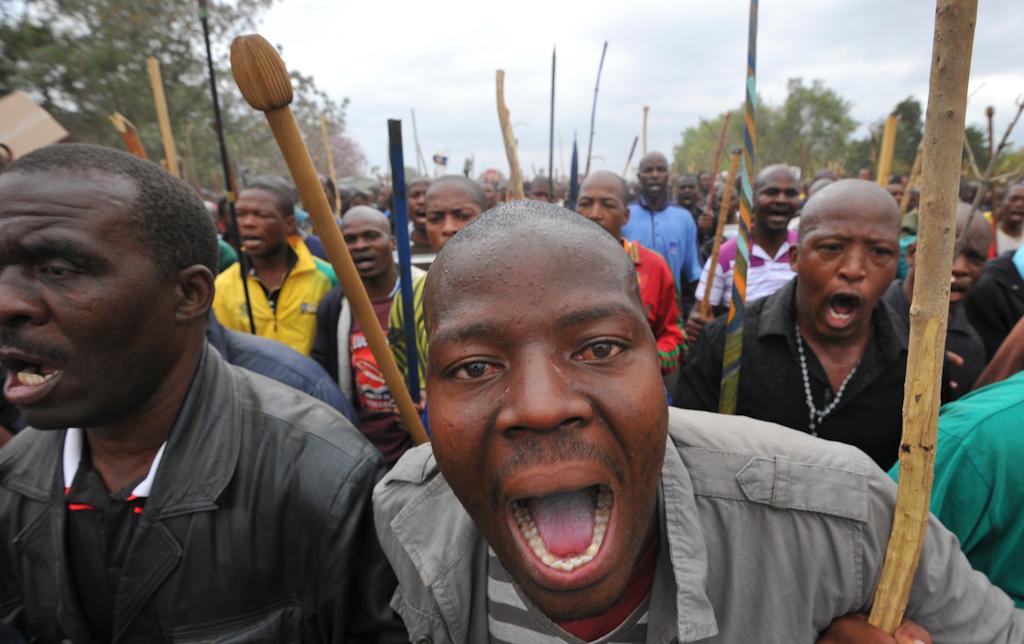A year after South Africa’s miner massacre, union killings haven’t stopped
Thousands of striking workers singing and carrying sticks march on a South African mine in Marikana on Sepember 5, 2012, as police were accused of shooting miners in cold blood during a crackdown that killed 34. Armoured police trucks and two police helicopters kept watch as around 3,000 miners arrived at the entrance of a shaft owned by the world’s number three platinum producer Lomin where a deadly strike is now in its fourth week.
MARIKANA, South Africa — Under a blistering South African sun, thousands gathered Friday at the barren rock outcropping where a year ago police shot dead 34 striking mineworkers.
The "Marikana massacre" was the bloodiest police action since the end of apartheid. Graphic video footage of that day shocked both South Africa and the world.
But at the anniversary memorial no government representatives stood among the miners, union officials, mining bosses and religious leaders who came to pay tribute to the dead with prayers and songs.
The ruling African National Congress and its cabinet ministers pulled out of the memorial ceremony just days before, claiming it had been "hijacked" by political opponents who were "taking advantage of a tragedy for their own political benefit."
The memorial day events were organized by the Association of Mineworkers and Construction Union, the more radical trade union that backed last year's wildcat strikes and pushed out the ANC-supporting National Union of Mineworkers.
In attendance was Julius Malema, the outspoken former leader of the ANC's youth league who was expelled from the party after falling out with President Jacob Zuma, and who recently formed his own political group.
While the ANC is expected to win again in next year's elections, the party has grown increasingly alienated from poor black workers and faces a mounting challenge from outsiders like Malema.
Meanwhile, a year after the police shootings, there is still turmoil in South Africa's troubled platinum-mining belt, which is located about two hours northwest of Johannesburg. The killings have continued in a running battle between rival unions. Just last week, a female union official was gunned down outside her offices.
A judicial commission of inquiry into the events at Marikana, tasked with determining the roles played by police, unions, the mine's management and government ministries in the tragedy, is dragging on despite having been originally scheduled to wrap up work by last December.
Speaking to the crowd at the memorial ceremony, the mine's owners apologized to the family members of those shot by police last year.
"We will never replace your loved ones and I say we are truly sorry for that," said Ben Magara, chief executive of Lonmin.
Jomo Ntluntu, 50, who works at the Marikana mine, said that wages remain an issue. Other miners and their families spoke of their frustrations with the lack of improvement in living conditions in the rough settlements that surround the mine.
"I feel pain, because our rights are still not met," Ntluntu said. "But I feel better after I come here, with the songs and the prayers."
